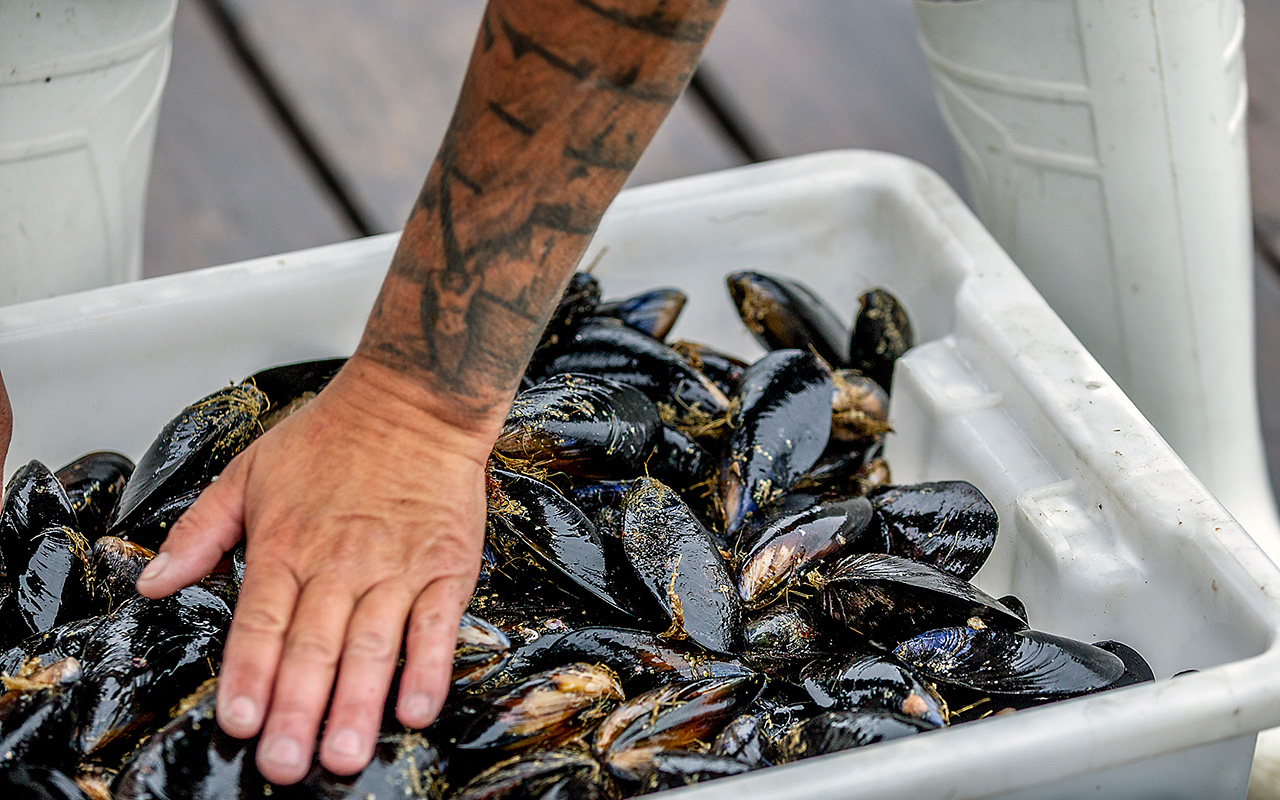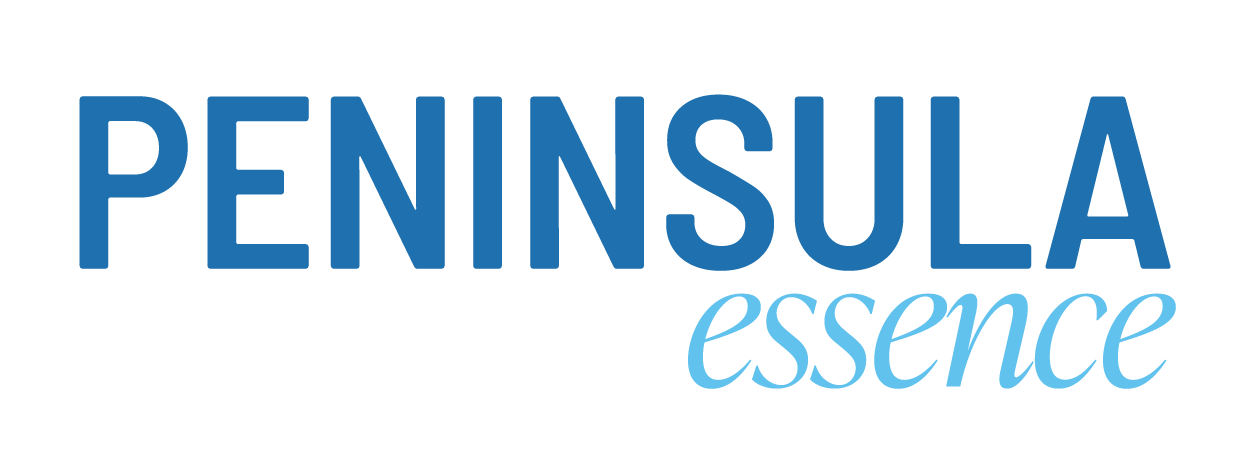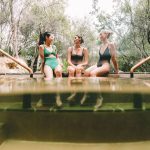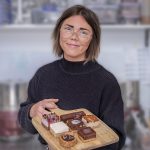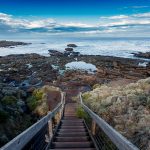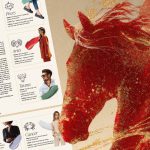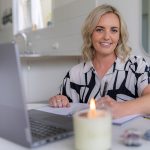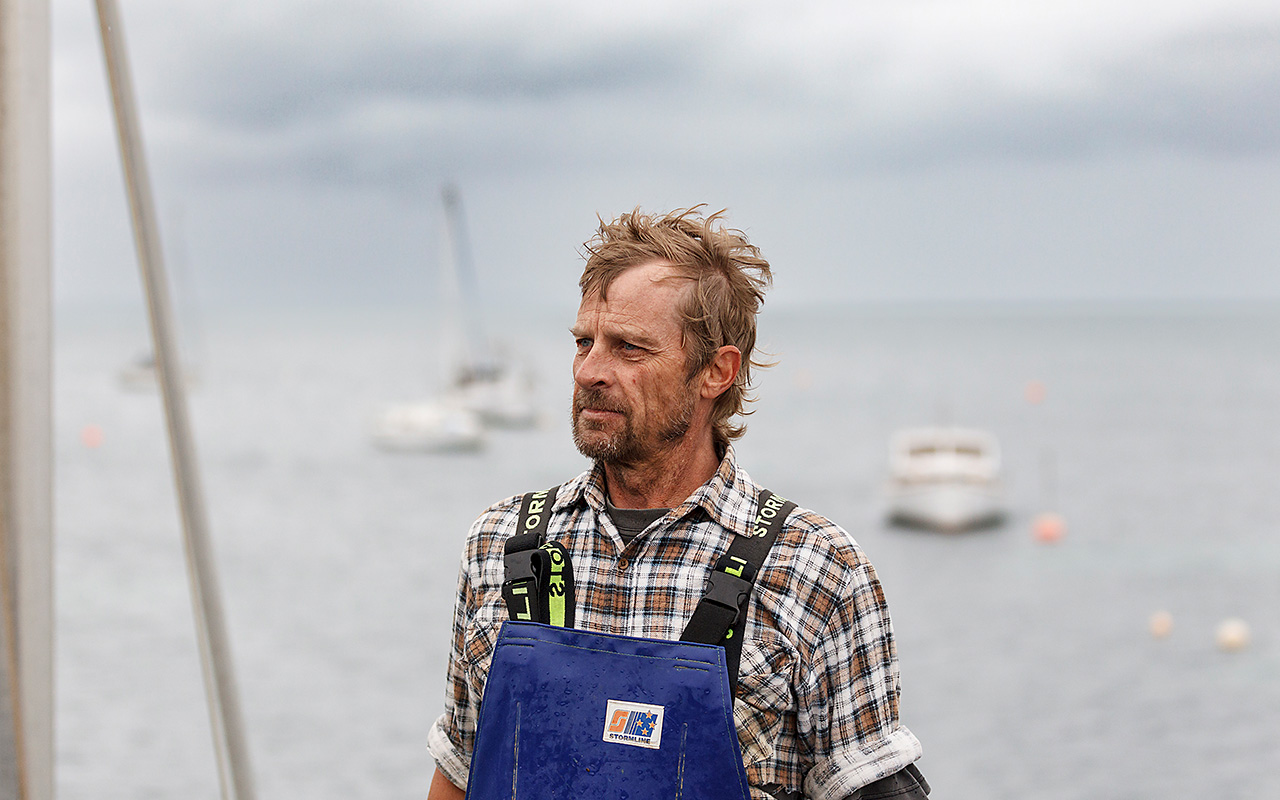
Michael “Harry” Harris is the quintessential fisherman, with a sun-kissed face, broad smile and a connection with nature and the ocean that seems to seep from him. In his youth he was instinctively drawn to a life at sea.
“My parents used to have a place at Flinders Island. There was a fishing fleet there and I used to be fascinated by the lifestyle.” He found himself with an after-school job as a deckhand on a cray-fishing vessel, quickly learned the ropes, and has worked on the ocean ever since, traveling afar.
In 1999 he established Flinders Mussels, a mussel farm in the aquaculture reserve at the mouth of Western Port Bay. “It’s such a dynamic environment here. I’m not dissing Port Philip Bay, but where’s the water there coming from? Off the streets, stormwater.”
The reserve’s unique marine environment allows the mussels to thrive, fed by the ebb and flow of the Southern Ocean tides. “Hence, different coloured flesh, different flavoured flesh. And they grow bigger.” The result? A product that is coveted by world-renowned chefs including specialist seafood restaurateurs Jacques Reymond and Michael Bacash. “My quality control is different. I sort them out; they’re all good for the plate, they’re all the same size. So the chefs have minimal stuff to do.
As for home cooks, Harry suggests keeping it simple. “You don’t use much water. Because my mussels are so fresh, the moment they’re on the heat they’ll pop open and boil in their own juice. When they’re cooked, I finish them off with apple cider or wine. And that’s it.”
And nutritionally? “They’re like a little super food, amino acids, protein, all the good stuff.
Harry describes himself as “old school”, a boutique producer. From his first harvest in 2000 he has been selling direct to the general public from his fishing boat at Flinders Wharf. The business grew by word of mouth. In 2016 he opened a food truck by the wharf, serving freshly-cooked mussels to an enthusiastic clientele.
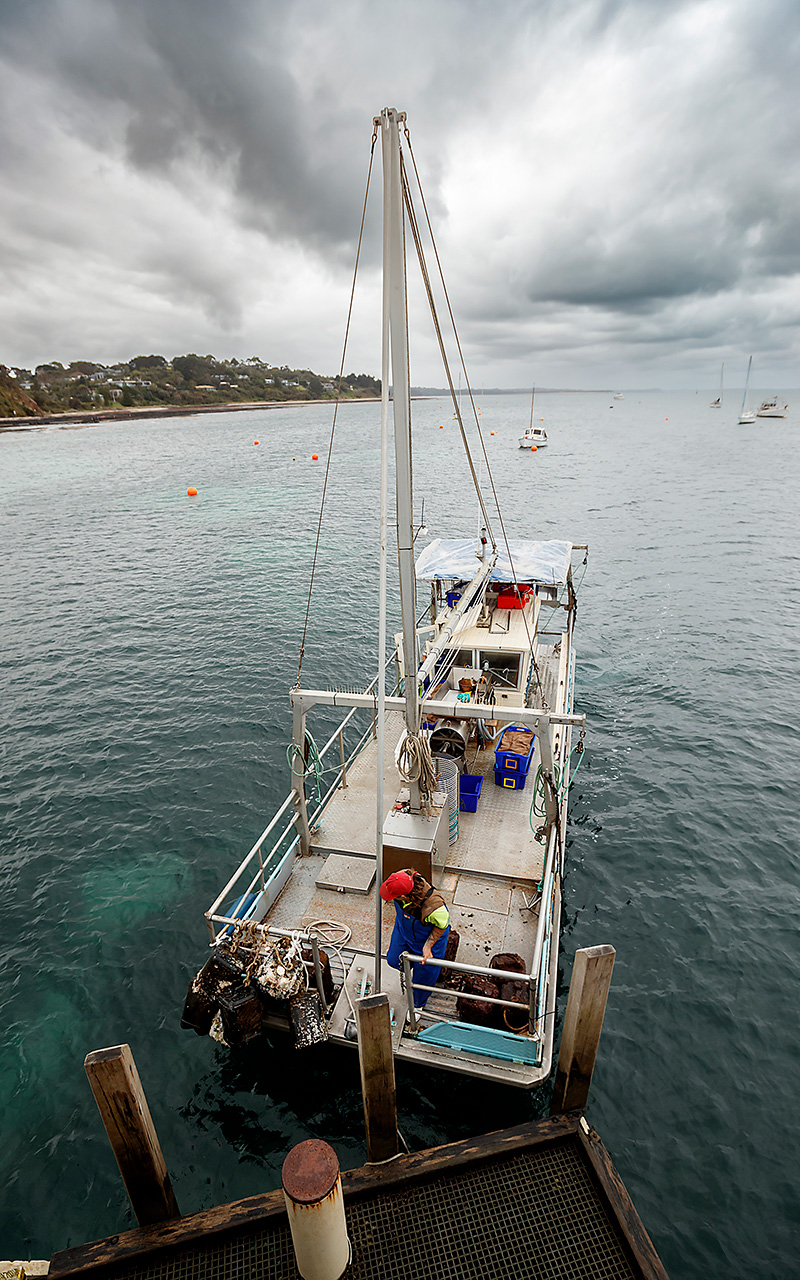
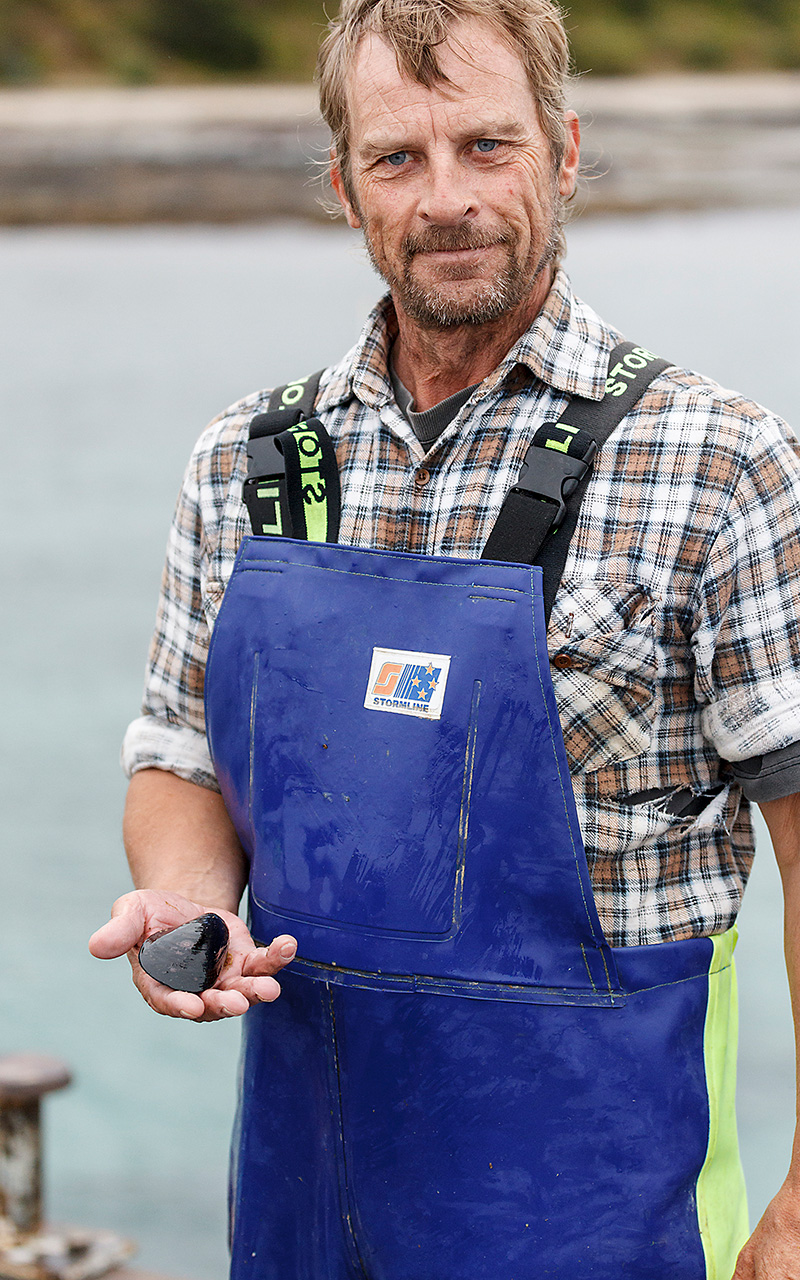
During mussel season, from late-December to mid-winter, he works seven days a week with his small team, seeding and harvesting mussels, and managing distribution. The long hours don’t bother him. “I feel very lucky to have found something that I love doing. I don’t even consider it a job. Every day I’m looking at the conditions. I’m entwined in the elements and the weather and the seasons. I love that. Tides, weather, winds, barometric pressures, they get me going.”
The cropping process involves putting baby mussels, known as ‘spat’, into cotton stocking-lined ropes in the water, to which they attach and grow over the course of a year or more. “You want calm weather when you’re handling the baby mussels. You want them to attach quickly.”
There is significant scientific expertise and infrastructure supporting aquaculture businesses like Harry’s. He acquires the baby mussels from the Queenscliff Shellfish Hatchery, which operates in happy symbiosis with his business – they in turn select particularly choice mussels from his farm to spawn and breed.
Harry’s long in-season hours are balanced by the off-season when he takes it easier, looking after essential maintenance and management to ensure the next season runs smoothly. He’s also an avid traveller, with a penchant for music festivals, and an enthusiasm for surfing and snowboarding.
Harry’s quality-control process leaves behind a small proportion of cracked or undersized mussels to pass on to others. “I might have a bait fisherman who’ll take some. Bartering is a powerful tool. It’s a feel-good tool as well. ‘Whadda you got? I’ll swap ya.’ This guy brought me around a kilo of whiting fillets, and all I did was give him my rejects.”
Harry also loves that his work ticks so many ethical boxes – producing food, from a native species, for local consumption, in a sustainable way, and contributing to water quality. “We, as humans, put a high nitrogen load into the sea, and mussels are little bio-filters that balance that out. It’s a win-win. And they taste good!”
As for the future, Harry’s thoughts turn first to family. “My parents are both 83. They live off the grid on Flinders Island. If I could sell up today and get over there, I’d do it. Take mum and dad on adventures, and just be there for them. They’re just great people, great people. Mum’s been a giver her whole life.”
I want to see my mussels in a little can. Just a romantic little tin with a great label on it
In the meantime, Harry has plans to expand his lease, allowing him to increase his output and start processing. “I’ve experimented with smoking mussels … and they are superb. They are unbelievable. Everyone I’ve given them to is like ‘Where? How?’” “I want to see my mussels in a little can. Just a romantic little tin with a great label on it. That’s where I want to see my product.”
“My grandfather was a farmer, and I always wanted to be a farmer. But I never knew how I was going to do it. Then I went fishing, and here I am owning a mussel farm. I’m working with the best chefs in Melbourne and my product is known worldwide.” His own life motto has paid off. “Don’t try to do everything. Just do one thing and do it really well.”
